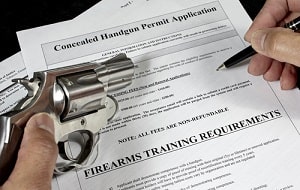Recent Blog Posts
What Are the Benefits Offered by Different Types of Trusts?
 A crucial part of the estate planning process involves the management of money and assets to ensure that a person will be able to provide for both themselves and their family members. Trusts can be one of the most useful tools for doing so. Assets that are held in a trust will be owned by the trust itself, and a trustee will manage the trust and distribute the assets according to specific instructions. Passing assets to beneficiaries through a trust can often be done much more quickly, efficiently, and privately than by leaving property to loved ones in a will. There are multiple types of trusts available, and understanding the best ways to use these tools can ensure that a person’s and family’s needs will be met.
A crucial part of the estate planning process involves the management of money and assets to ensure that a person will be able to provide for both themselves and their family members. Trusts can be one of the most useful tools for doing so. Assets that are held in a trust will be owned by the trust itself, and a trustee will manage the trust and distribute the assets according to specific instructions. Passing assets to beneficiaries through a trust can often be done much more quickly, efficiently, and privately than by leaving property to loved ones in a will. There are multiple types of trusts available, and understanding the best ways to use these tools can ensure that a person’s and family’s needs will be met.
Common Types of Trusts
-
Revocable living trusts - With these trusts, the settlor who creates the trust will be able to change the terms of the trust if need be, and they may also act as the trustee, ensuring that the assets will be managed and distributed correctly. The settlor may also be a beneficiary, allowing them to make use of certain assets to meet their own needs while they are still alive, while ensuring that a successor trustee will distribute the remaining assets to other beneficiaries after their death.
How Is a Family Business Handled During an Ohio Divorce?
 During the divorce process, a couple will need to address ownership of multiple types of marital assets. The equitable division of marital property will provide both spouses with a fair share of the money and assets they acquired during their marriage. While the division of some types of assets may be straightforward, other types of property can present complications, and spouses may encounter contentious disputes as they address these issues. Family businesses are one type of asset that can sometimes be difficult to address, but by understanding their rights and options, spouses can make decisions that will provide them with the financial resources they need going forward.
During the divorce process, a couple will need to address ownership of multiple types of marital assets. The equitable division of marital property will provide both spouses with a fair share of the money and assets they acquired during their marriage. While the division of some types of assets may be straightforward, other types of property can present complications, and spouses may encounter contentious disputes as they address these issues. Family businesses are one type of asset that can sometimes be difficult to address, but by understanding their rights and options, spouses can make decisions that will provide them with the financial resources they need going forward.
Is a Business Considered Marital or Separate Property?
A family business will be part of the marital estate if it was founded or acquired while a couple was married. In these cases, business assets will need to be considered alongside other marital assets and debts. If a business was owned by one spouse before the couple was married, it will usually be considered separate property, and that spouse will be able to maintain sole ownership of business assets. However, a business owned by one spouse may become commingled with other marital property, such as if the couple invested marital funds in the business. A spouse will be able to maintain ownership of any business assets that can be traced back to separate property, but other business assets may need to be divided between the spouses.
What Penalties Can I Face for Drug Possession in Ohio?
 While a person can face serious penalties for any type of criminal charges, cases involving controlled substances will often lead to some of the most serious consequences. A conviction for drug possession can lead to large fines and a lengthy prison sentence, and a person may also face other consequences, such as probation and the requirement to receive substance abuse treatment and take regular drug tests. Those who have been accused of drug-related offenses can work with a criminal defense attorney to determine their best options for avoiding or minimizing their potential penalties.
While a person can face serious penalties for any type of criminal charges, cases involving controlled substances will often lead to some of the most serious consequences. A conviction for drug possession can lead to large fines and a lengthy prison sentence, and a person may also face other consequences, such as probation and the requirement to receive substance abuse treatment and take regular drug tests. Those who have been accused of drug-related offenses can work with a criminal defense attorney to determine their best options for avoiding or minimizing their potential penalties.
Possession of Controlled Substances in Ohio
A person may be charged with drug possession if they are accused of knowingly obtaining, possessing, or using a controlled substance without legal authorization (such as a prescription for a medication). Controlled substances are grouped into five “schedules” based on whether drugs are considered to be dangerous and addictive and whether they have any accepted medical uses. Schedule I drugs are generally the most addictive substances, while drugs in Schedules II-V may be used for medical purposes in some situations.
Can I Receive Compensation for a Dog Bite Injury?
 Many people keep dogs as pets and treat them as members of their families. However, dogs do not always behave as expected, and even if an animal had always acted in a friendly manner, it may bite or attack someone. Dog bites can inflict multiple types of serious injuries, including severe cuts and bruises, broken bones, and puncture wounds that damage muscles, tendons, ligaments, or internal organs. In some cases, dog bites can result in permanent scars, and a victim may also experience emotional trauma that affects their ongoing well-being.
Many people keep dogs as pets and treat them as members of their families. However, dogs do not always behave as expected, and even if an animal had always acted in a friendly manner, it may bite or attack someone. Dog bites can inflict multiple types of serious injuries, including severe cuts and bruises, broken bones, and puncture wounds that damage muscles, tendons, ligaments, or internal organs. In some cases, dog bites can result in permanent scars, and a victim may also experience emotional trauma that affects their ongoing well-being.
Dog bite victims can sometimes be placed in a difficult position, especially if they are attacked by a dog that is owned by a friend or family member. When an attack occurs in a public place, at someone else’s home, or when a dog is in the care of someone other than the animal’s owner, victims may be unsure about their options. By understanding how the personal injury laws in Ohio address dog bites, victims can make sure they take the right steps to receive compensation for their injuries and damages.
Can I Receive Spousal Support as a Stay-at-Home Parent?
 Nearly everyone who goes through a divorce will have some concerns about their ability to provide for themselves once their marriage has been terminated. However, this can be an even larger worry if you are a stay-at-home parent. If you have chosen to put raising your children ahead of your career, this may have made you financially dependent on the income earned by your spouse, and depending on how long you have been out of the workforce, you may struggle to find and maintain employment following your divorce. In this type of situation, you will likely be wondering whether you can receive spousal support that will allow you to meet your needs and provide for your family.
Nearly everyone who goes through a divorce will have some concerns about their ability to provide for themselves once their marriage has been terminated. However, this can be an even larger worry if you are a stay-at-home parent. If you have chosen to put raising your children ahead of your career, this may have made you financially dependent on the income earned by your spouse, and depending on how long you have been out of the workforce, you may struggle to find and maintain employment following your divorce. In this type of situation, you will likely be wondering whether you can receive spousal support that will allow you to meet your needs and provide for your family.
Addressing Spousal Support in an Ohio Divorce
There is no guarantee that spousal support will be awarded to a spouse during the divorce process. These situations are handled on a case-by-case basis, so if you believe that you need financial support from your spouse, you will need to demonstrate that this support is needed and that your spouse has the ability to provide you with spousal support. When determining whether spousal support is appropriate, a judge will consider factors such as:
What Are the Consequences of a First-Time OVI in Ohio?
 Everyone should understand that driving while under the influence of alcohol or drugs is illegal. However, people sometimes make mistakes, and even if a person believes that it is safe for them to drive, they may be pulled over by a police officer and arrested on suspicion of drunk driving. For those who have never been in this situation, the thought of facing criminal charges can be very frightening, and they will want to understand the potential consequences they could face for a first-time DUI/OVI conviction.
Everyone should understand that driving while under the influence of alcohol or drugs is illegal. However, people sometimes make mistakes, and even if a person believes that it is safe for them to drive, they may be pulled over by a police officer and arrested on suspicion of drunk driving. For those who have never been in this situation, the thought of facing criminal charges can be very frightening, and they will want to understand the potential consequences they could face for a first-time DUI/OVI conviction.
First-Time DUI/OVI Penalties
While drunk driving is commonly referred to as driving under the influence or DUI, the state of Ohio uses the term OVI, which is an abbreviation for operating a vehicle under the influence. A person may be charged with OVI if a chemical test shows that they had a blood alcohol content of .08% or higher, and Ohio law also specifies the amounts of multiple other types of drugs that will cause a person to be legally intoxicated.
When Can a Will Be Contested in Ohio Probate Court?
 When a person dies, the executor or administrator of their estate will file their last will and testament in probate court. During this process, the executor or administrator will oversee the deceased person’s final affairs, including performing an inventory of their property and assets, making payments to creditors, and distributing their assets to the beneficiaries named in their will. In some cases, disputes may arise among the deceased person’s beneficiaries regarding the distribution of assets. However, a will can only be contested in certain cases, and the parties in these types of disputes will need to work with an attorney to address the validity of their loved one’s will.
When a person dies, the executor or administrator of their estate will file their last will and testament in probate court. During this process, the executor or administrator will oversee the deceased person’s final affairs, including performing an inventory of their property and assets, making payments to creditors, and distributing their assets to the beneficiaries named in their will. In some cases, disputes may arise among the deceased person’s beneficiaries regarding the distribution of assets. However, a will can only be contested in certain cases, and the parties in these types of disputes will need to work with an attorney to address the validity of their loved one’s will.
Grounds for Contesting a Will
Disagreements between a person’s heirs may arise when a person believes that they should receive certain assets or because they do not believe that the will accurately reflected the testator’s wishes (the person who created the will). If a person wishes to contest a will, they must do so within three months after being notified that the will has been filed in probate court. A will may be contested based on:
Frequently Asked Questions About Ohio Car Accident Injury Claims
 Getting into a car crash can turn your life upside down. Car accident victims are often left with painful injuries that prevent them from working and fulfilling other duties. They may also be left with significant medical bills, vehicle repair or replacement costs, and other expenses. If you or a loved one were hurt in an accident, you may want to consider filing a personal injury claim. A personal injury claim may allow you to recover monetary damages for the financial losses and non-economic harm you suffered because of the accident.
Getting into a car crash can turn your life upside down. Car accident victims are often left with painful injuries that prevent them from working and fulfilling other duties. They may also be left with significant medical bills, vehicle repair or replacement costs, and other expenses. If you or a loved one were hurt in an accident, you may want to consider filing a personal injury claim. A personal injury claim may allow you to recover monetary damages for the financial losses and non-economic harm you suffered because of the accident.
Do I Have a Valid Claim?
All personal injury claims involve the following elements:
-
Duty – the other party owed you a “duty of care.” Ohio drivers are required to drive with a reasonable degree of caution and attention.
-
Breach of Duty – The other party breached his or her duty of care by driving irresponsibly. Many car accident claims stem from accidents involving texting and driving, drunk driving, speeding, unsafe lane changes, or negligent driving.
Factors that Complicate the Division of Assets in an Ohio Divorce

When you and your spouse got married, you joined your lives personally and financially. Separating your lives through divorce also involves separating your finances. The division of assets and debts is often one of the most consequential aspects of the divorce process. The fewer assets and liabilities a couple has, the simpler this process typically is. Complex assets and investments or a high net worth will greatly complicate asset division during a divorce. If you have a complicated financial situation and you plan to end your marriage, working with a skilled divorce lawyer is highly recommended.
Marital and Separate Property that Has Been Commingled
Ohio is an “equitable division” state, which means that marital property is divided fairly between the spouses based on factors including each spouse’s property, debts, and earning potential, the duration of the marriage, and tax consequences. Only property contained within the marital estate is divided by Ohio courts in a divorce. Property that is classified as “separate property” is assigned to the spouse who originally owned the asset. Marital property is the property that was acquired during the marriage. Separate property includes property acquired before the marriage, inheritance, passive income from separate property, and property acquired after a legal separation.
New 2021 Law Affects Concealed Carry Gun Permits in Ohio

There is no doubt that 2020 was a challenging year due to the coronavirus pandemic. Although many are looking forward to a new year, it is important to understand any new laws that are taking effect in 2021, especially if you are a gun owner. People who live in Ohio can now apply for and renew their concealed carry permits at any sheriff’s office in the state. Previously, residents could only apply for or renew their permits from the county in which they lived or a neighboring county. The new law also extends all expiration dates through June 30, 2021. In addition, if a license expires between April 1, 2021, and June 30, 2021, the license is further extended an additional 90 days past the expiration date. Ohio gun laws can be detailed and complex, causing someone to unintentionally violate them, which can lead to serious criminal charges.




